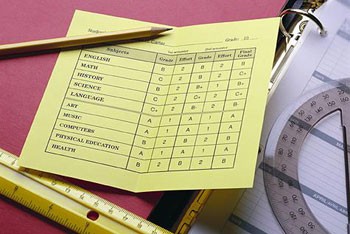|

|
|
The Marriage & Couples Counseling Process
Article 5. Assessing Each Person's
Happiness in the Relationship
By Reuben E. Gross M.A., M.S., PhD, ABP, ABBP, FAACP, LMFT
For a free 15 minute consultation call me at:
Office Phone: (201) 836-2737
Cell Phone: (201) 218-3112
Office Address: 1299 Wellington Avenue, Teaneck, NJ 07666
|
This article describes the parameters of an informal assessment scale that I introduce to each spouse, when I ask them to report their level of happiness in the relationship at the time of our initial counseling appointment. |
In order for me to gauge the level of unhappiness, including hurt, pain, insecurity, loneliness, anger or other emotional distress and the severity of these emotions as experienced by each individual, at the very beginning of therapy, I will ask each person to independently grade their happiness in the relationship along the following lines:
There are many variations on the discussion that might ensue during this exercise; consequently, the reader is asked to understand that the description that follows only gives an approximation of what this grading experience is all about. Although the grade may be an "F" or higher, some individuals give a range. They may say, when things are OK, we're at an "A" level, but when we fight we're at an "F."
|
A GRADE OF "F" is given by individuals who are separated or close to separation. This grade is given by a person whose assessment of his situation is: "This marriage or relationship does not meet my minimal requirements and is too painful for me to continue in it. I would like to see the relationship change. I have (a greater or lesser amount of) hope that it will, and that's why I came for counseling. But if it doesn't improve, I will walk."
|
 |
People in this category have contemplated divorce, have threatened it, or have already sought legal advice. In my explanation of the grading system, I ask the couple to compare the "F" grade to a situation with a teacher and a failing student. She'll do what she can to bring up his grade. However, unless the child reaches a minimal level of competence, she has no choice but to fail him. Sometimes, I compare an "F" level of happiness in the marriage to a guy holding onto a cliff by his fingertips. He cannot continue for very long. If he doesn't get immediate help, he'll fall off.
A GRADE OF "D" reflects a marriage/relationship wherein the individuals think about separation or even threaten it in the middle of a fight. Although no one is "walking" just yet, there is a great deal of unhappiness, often anger, hurt, and pain. Many couples spend years hoping that the situation will improve without outside intervention. But the fact is that in spite of the efforts of (one or) both parties, or perhaps in view of the lack of effort of (one or) both parties, the situation has not improved. They now realize that the marriage will deteriorate if the problems are not addressed, or at best, the relationship will stay at the same low level it is now. Neither of these possibilities is acceptable and therefore the couple comes for counseling.
A "D" relationship is sluggishly moving along, not getting where it should be "on time," if at all. Yes, there are satisfactions, but they are minimal: a bone here and a bone there. Although the couple may be holding on (because of internal or external restraints as noted below), it is clear that the individuals are not happy. A couple or person who grades his relationship "D" is not quite ready to break up. However, if the situation deteriorates, or even if it just stays at this low level, and the external or internal constraints let up, even slightly, that person might just come to the conclusion that life is too short to live this way. Such an individual might be willing to take their chances of splitting up and trying another route whether or not they find another partner.
A GRADE OF "C" is given by a person who considers his marriage "fair." In some areas, it may be "B" or better but in other areas, it may be "D" or worse. The relationship is "nothing to write home to momma about" but there are enough satisfactions to make the relationship viable and the individual is not threatening, much less contemplating, to leave. In fact, in one or two areas a person might even grade the marriage "B+" or higher. Couples who come in with an agreed-upon average of "C" are not in pain but because of certain problems, they are not as happy as they believe they could be. In spite of their problems, they have a positive attitude towards the marriage, are hopeful about their future together, and throw themselves into the counseling process with more enthusiasm and optimism than the "D" or "F" people who are in pain and suffering, and frequently discouraged and exhausted.
A GRADE OF "B" is given by a person who believes his marriage is good and who is generally happy. Understandably, there are frustrations from time to time, and the marriage might not merit a "B" across the board, but overall the individual is satisfied. If so, what is he doing in my office? Simple. His partner is unhappy (may give a "C" or even worse). But he, too, has something to gain since a B+ or higher may be within reach. Sometimes, both individuals grade the marriage "B", i.e., good, but have problems in one or more specific areas and need help in resolving them.
A GRADE OF "B+" is given by someone who is very happy. What is he doing in my office? Strange as it may seem, I have had couples wherein usually the man (but the genders can be reversed) was quite, or even perfectly happy, but his wife was nowhere in the same league. Clearly, she was satisfying his needs in the marriage, but he was not satisfying her needs. His wife might grade her happiness as "C", "D" or worse. The husband comes for counseling because his wife insists on it, and she may have even moved out of the bedroom or threatened separation to get him "to see the light".
Happiness is Catching; So is Misery
For the most part, however, partners are generally at the same grade of happiness, or else one full grade apart. As time elapses in the relationship, the grades come closer and closer. This is so because if one person is unhappy, that person will eventually express it by complaining, attacking, or withdrawing. Partners are like Siamese twins who share the same circulatory system. Their blood flows into each other. So it is with the happiness-unhappiness continuum as regards two people who live with each other. Eventually, they will both be experiencing the same level of happiness, discontent, alienation, or misery.
May I add here the comment of one wife who agreed with my point about each person's feelings affecting the other person's feelings, but did not think the analogy fit her situation. She said, "My husband and I don't experience the connectivity implicit in the Siamese twin analogy."
I am indebted to her for her analogy: "We're like two people in a rowboat. It doesn't matter under whose seat there is a hole. If we don't plug up the hole, we'll both go down."
END OF ARTICLE V "Assessing Each Person's Happiness in The Marriage"
FOR MORE ARTICLES ON "THE MARRIAGE & COUPLES COUNSELING PROCESS" PLEASE CLICK HERE.
Back to Top

Inquiries Welcome
I see couples in person as well as online
For a free 15 minute consultation call me at: